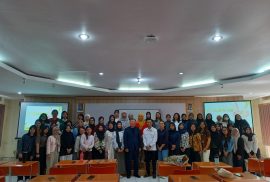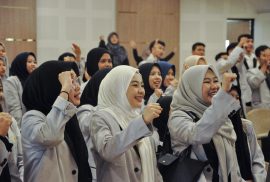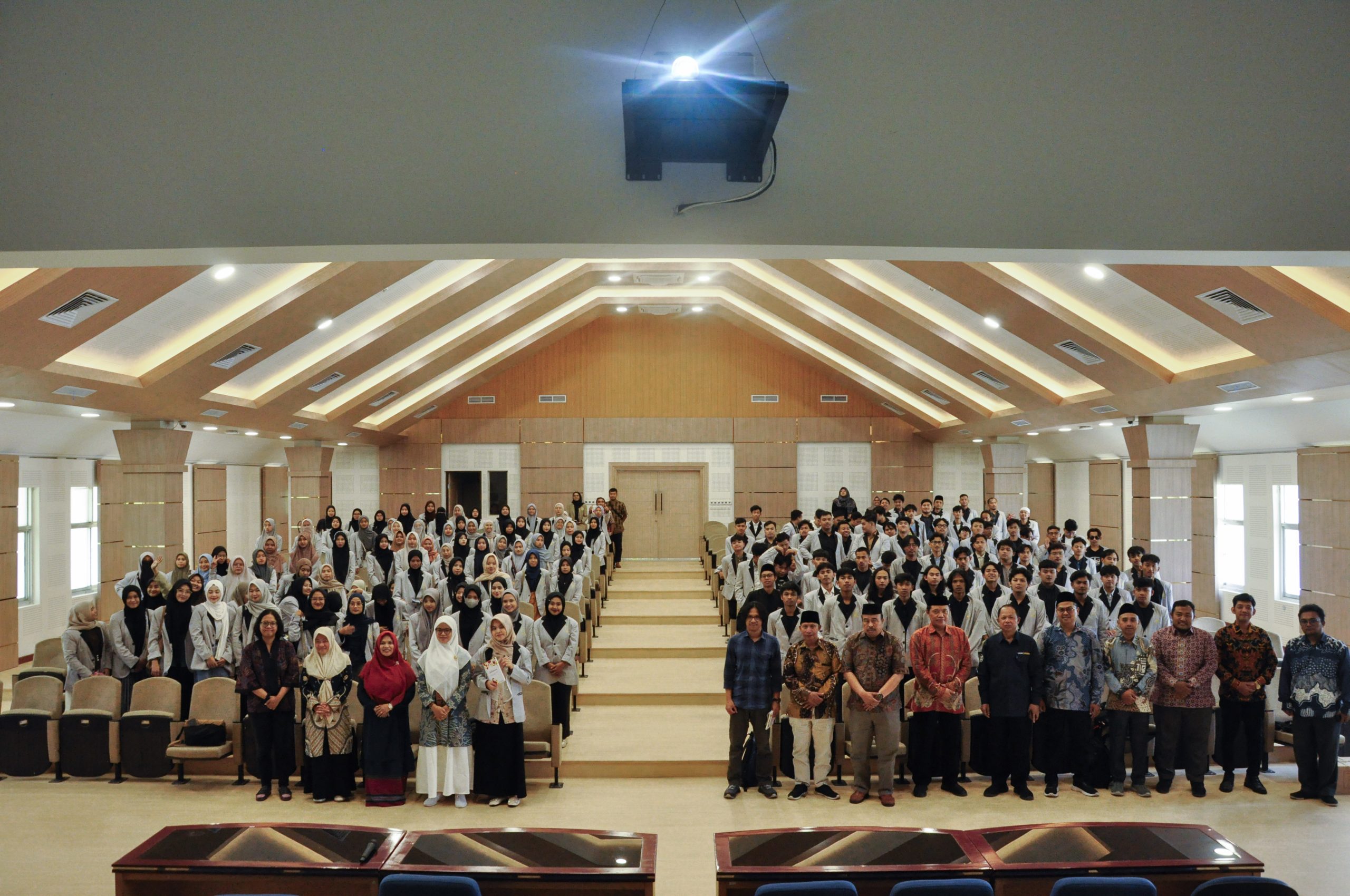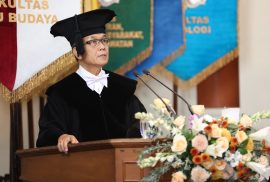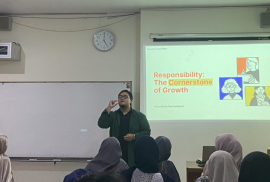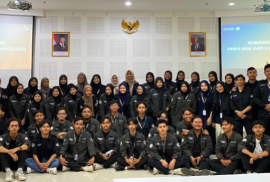Yogyakarta, 5/5/2025 – UGM Korean Language and Culture Study Program held a public lecture entitled “ Oratory Techniques in Korean” in the Multimedia Room of the Margono Building. The event presented the Chairman of K-Speech Indonesia, Woo Young Taek, as a speaker who delivered the material entirely in Korean. This activity aims to improve students’ oratory skills and support the Sustainable Development Goals (SDGs) in the fields of education and global partnerships.
This public lecture lasted for approximately one and a half hours. During the presentation, Woo Young Taek shared various oration techniques commonly used in Korean, such as the use of intonation and tone, voice modification, facial expressions, and body language.
In the middle of the lecture, students were also encouraged to practice these techniques through short self-introductions to improve their public speaking skills.
The event was closed with the presentation of certificates to the speakers and a group photo session. Through collaborations like this, it is hoped that the Korean Language and Culture Study Program can send its students to participate and compete in oration competitions at the national and international levels.
[Public Relation of Korean Language and Culture, Sherina Azmi A.]

